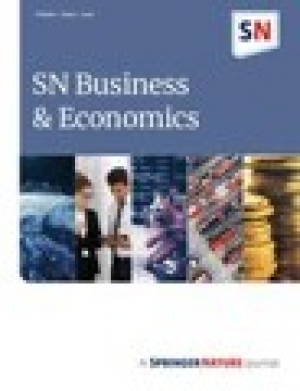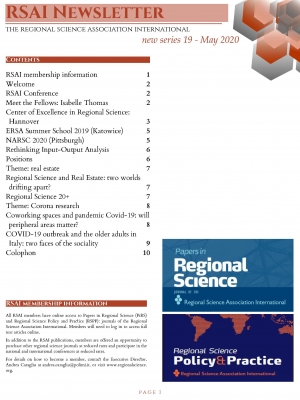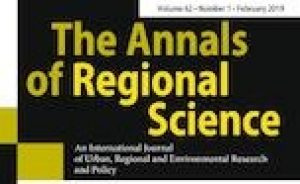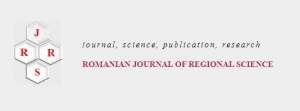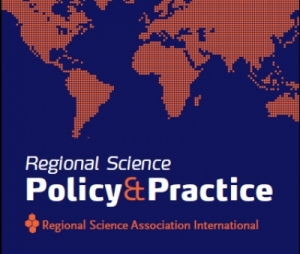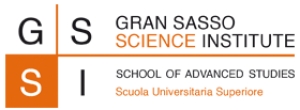Archives
Elisabete Martins
Call for Papers - International Borders: Economic and Business Development Perspectives – Special Issue of SN Business & Economics
Editors: Rafael Garduño-Rivera (School of Business & Economics, Universidad Panamericana, Mexico); Haoying Wang (Department of Business and Technology Management, New Mexico Tech, USA)
Today, every region across the globe experiences different issues among its international borders. For example, the US-Mexico border region (quite different to the US-Canada and the Mexico-Guatemala borders), the Kashmir region in Asia, the UK and its relationship with the EU (and Ireland), the North-South Koreas, Greece and Cyprus, Colombia and Venezuela, and the list goes on. International borders exist to protect domestic markets while facilitating cross-border trade and communications. From an economic perspective, both sides along the border would benefit from opportunities associated with an open border. The reality often finds a situation being complicated by various socio-economic factors from policies to social norms.
Regional conflicts along international borders have become a major externality of the globalization process. In the meantime, economic and business development opportunities exist along international borders. How to resolve the conflicts and transition to binational coordination and development has been an interesting topic to academics, NGOs focusing on international development, and the concerned public.
This collection expects to attract studies from different parts of the world to learn about the economic and business development conditions along different international borders and how each country is dealing with or taking advantage of them. The collection will enrich our knowledge of the policy landscape and the private enterprise in each of the unique situation. New insights can be drawn to provide inputs to forge policies facilitating cross-border development.
While we are in the era of globalization, a lot of economic and business development opportunities are left unexplored along international borders. This collection will raise awareness of these problems and explore the reasons behind the status quo. An open and in-depth discussion can help to identify the influential factors and support policymaking to tap into the economic and business development potential along international borders. This collection seeks disciplinary perspectives from regional economics, international trade, entrepreneurship, environmental and natural resources economics, and public policy. It is also open to interdisciplinary studies.
Research is welcomed across the following areas, and others:
- The economics of migration
- Cross-border trade
- Port economy and agglomeration along international borders
- Environmental and natural resources management along international borders
- Border-region economic development
- The economic impact of cross-border illegal activities
- Border tourism and day trips
- Poverty and inequality in border regions
- Spatial economic analysis related to border effects
We are explicitly excluding studies (1) concerning border wars and political conflicts; (2) movements of peoples across international borders; (3) cross-border international aid. While these topics are definitely of policy importance and research interest, they usually fall out of the realm of economic and business development.
The collection accepts theoretical, empirical, and policy studies in the form of original research paper and review paper. In-depth case studies may be considered. The author(s) are encouraged to communicate with the guest editors before submitting a case study. All manuscripts should follow the journal’s submission guidelines.
This is a rolling collection and submissions will be accepted until the end of May 2021. Authors who wish to discuss ideas for articles are encouraged to contact the guest editors directly before submission. Full papers must be submitted via the journal’s submission system. Submissions by email will not be considered.
The website for the special issue can be found here.
RSAI newsletter May 2020
Dear RSAI members,
It is a pleasure to reach out to all of you in these difficult months. As you may know by now, RSAI decided to postpone the 2020 World Congress, which would have taken place on Marrakech on June 2/5, 2020. This and other news, as well as many interesting articles on Real Estate and on the spatial implications of the COVID-19 emergency, are featured in the new issue of the RSAI Newsletter (https://www.regionalscience.org/images/PDF/Newsletter%202020%20May.pdf), skillfully edited by Martijn Smit and Graham Clarke.
The Newsletter, and the many initiatives described in it as well as on our website (https://www.regionalscience.org/), testify that RSAI maintains a strong link with our larger community. While waiting to meet each other in person hopefully soon, I hope you enjoy reading this news.
Kind regards,
Andrea Caragliu
Executive Director, Regional Science Association International
The Annals of Regional Science, Vol. 64, Issue 3 - New Issue Alert
|
Call for Papers | Special issue of the Romanian Journal of Regional Science (Postponed deadlines)
Call for Papers - Postponed deadlines
Romanian Journal of Regional Science (rjrs.ase.ro) invites contributions for the special issue entitled ”Uncovering territorial inequalities and spatial justice in the EU”, under the auspices of the Horizon 2020 project IMAJINE – Integrative Mechanisms for Addressing Spatial Justice and Territorial Inequalities in Europe, with Ana Vinuela, University of Oviedo, Spain and Maria Plotnikova, Aberystwyth University, UK as Guest Editors.
The special issue is planned to be launched by mid-December, 2020. Submission deadline: October 11 at This email address is being protected from spambots. You need JavaScript enabled to view it.
The problem of territorial inequality is especially important for the EU. The European project has been a long-running process of the coming together of the European states into a single territorial unit. Territorial inequalities have long persisted in the EU. Following a period of convergence in the 1990s and early 2000s, the 2008 financial crisis had widened regional economic disparities in Europe. Territorial inequalities have been targets of policy intervention via regional policy and more recently, Cohesion policy with the objective to promote more balanced and more sustainable territorial development.
Policy intervention is deemed necessary because territorial inequalities in economic performance may over-time lead to divergence in levels and trajectories of development among regions, preventing lagging regions from reaching their potential and necessitating fiscal transfers from richer ones. Territorial inequalities engender migration flows from poorer to richer regions contributing to cumulative causation behind the persistence of inequalities. Territorial inequalities in unemployment and health bring about clusters of multi-dimensional deprivation, increasing reliance on welfare disbursements and public provision of services. Moreover perception of territorial inequalities in ‘lagging’ or ‘left-behind’ regions may foster what has been termed as the “geography of discontent” expressed in grass-roots movements, support for extreme political parties and anti-establishment voting behaviour (e.g. Brexit vote outcome in the UK).
The perspective of spatial justice offers a new angle for analysing and ultimately tackling territorial inequality. Inequalities may be understood as differences in opportunities available for individuals expressed through access to (e.g. education, jobs, healthcare, services, and, ultimately social mobility) that differ across space and where spacial differences in access interact with its socio-economic determinants such as class, gender, age, ethnicity and others.
Understanding territorial inequalities therefore requires greater attention to regional and local socio-economic contexts. Doing so brings to light the interrelationship between economic inequality and other location-specific factors such as differential capacity of regions and localities to sustain economic activity, absorb economic shocks and respond to policy intervention, including Cohesion policies.
We invite papers addressing the issues of territorial inequalities and conceptualization of spatial justice from any disciplinary area.
Portuguese Review of Regional Studies (RPER): Nº 55 (2020) is already available!
It is a pleasure to inform you that the issue nº. 55 (2020) of our journal (Portuguese Review of Regional Studies) is now available online. You can accede to it using the link:
RSPP Call for Paper | Special Issue on Spatial Resilience and the Border Regions of Europe (NEW DEADLINE)
RSPP Call for Paper
Special Issue on Spatial Resilience and the Border Regions of Europe
One of the least exploited research directions in regional science is the investigation of spatial patterns in relation to resilience, as well as of the role that geographical positioning, respectively the interaction between space and socio-economic activities, play in fostering and enhancing resilience, especially in border regions.
Some key research questions arise as being particularly important for development policies: Are there spatial differences in the resilience outcomes, and have various regions different responses to economic shocks along with their ability to adapt to new economic circumstances, depending on the geographical positioning of a region? Are regions with external borders less resilient to economic, environmental, social or political shocks than regions without any national borders, or with borders that are internal to the EU? Is the impact of a shock on border regions different from the impact on domestic regions? Or does the impact differ on peripheral regions vs. central ones? Can cross-border cooperation reduce border effects and transform borders from a disadvantage into an opportunity? What role do physical, administrative, economic, cultural, institutional, or political barriers have on the resilience of border regions?
This special issue on Spatial Resilience and the Border Regions of Europe aims at responding to some of key challenges for border regions, collecting a set of studies on:
- The principles and effects of spatial resilience (be it cities, regions, rural areas, spatial labor markets, migration, transport systems, public facilities etc.);
- How to better connect and inter-connect the territorial dimension with the economic, social or the ecological issues of resilience in the borderline regions (both external and internal);
- The systemic vulnerability, territorial planning, growth patterns, urban development, quality of life and demographic aspects of cities in the border regions;
- The core-periphery structural differentiation or evolutionary paradigms connected with the resilience capacity;
- Border effects on resilience and the role of cross-border cooperation;
- New approaches on spatial dynamics, from the perspective of the equilibrating forces inherent in regional and urban systems.
Case studies on Romania, Bulgaria, Georgia, Armenia, Belarus, Azerbaijan, Ukraine, Poland, Hungary, Estonia, Leetonia, Latvia, Greece, Turkey, Russia and Finland, but also on the internal “borders” of EU will be more that welcomed.
Papers should be submitted to the regular review process of the journal (https://rsaiconnect.onlinelibrary.wiley.com/journal/17577802) until July 15, 2020.
The coordinators of the Special Issue:
Gabriela Carmen PASCARIU (This email address is being protected from spambots. You need JavaScript enabled to view it.)
Karima KOURTIT (This email address is being protected from spambots. You need JavaScript enabled to view it.)
Ramona TIGANASU (This email address is being protected from spambots. You need JavaScript enabled to view it.)
Invitation Special Issue in Economia Journal on "Applications and Methods for Spatial Economic Data"
Special Issues
Applications and Methods for Spatial Economic Data
Over the last decades, the georeferenced socio-economic datasets to individual level). Also, recent advances and developments in computer programming, geographic information systems and spatial econometric softwares provide the tools for handling this complex information. Spatial data add important contextual and locational information given the opportunity to estimate externalities, social interactions, spatial dependence and spatial heterogeneity in regression models. Techniques to analyze spatial Geography, Urban and Regional Planning and Development, Real Estate Studies, among others. This Special Issue aims to gather papers that include techniques in Spatial Statistics and Spatial Science. Topics include, but are not limited to: spatial regression model, exploratory spatial data analysis, spatial panel data models, regressions, spatial nonparametric methods, computational techniques in large spatial data sets. Both theoretical and empirical studies are welcome. All submitted articles will undergo rigorous peer review, and in the event of acceptance, are ensured rapid publication and high visibility.
Guest Editor:
Dr. Marcos Herrera. CONICET-IELDE, National University of Salta, Argentina. E-mail: This email address is being protected from spambots. You need JavaScript enabled to view it.
Deadline for manuscript submissions:
15 August 2020
Suggested links:
To make a submission, please follow this link and select the corresponding Issue.
To download this announcement PDF version, please click here.
AESOP Newsletter 04/2020
|
||||||||||||||||||||||||||
|
Research doesn't stop. New webinar series at GSSI
The GSSI is about to launch "The Social Sciences webinar series" starting on May 5, 2020, with the intent of spurring the debate about key topics in Regional Science and Economic Geography and keep us intellectually active, while staying safe and physically distanced as this difficult lockdown time requires. The sessions will feature key scholars in the field coming from some of the best universities all over the world.
The webinars are free and public. For registration and information on how to participate and intervene please write to: This email address is being protected from spambots. You need JavaScript enabled to view it.
Call for Papers – North American Meetings of the Regional Science Association International, San Diego, California, November 11-14, 2020
Call for Papers – North American Meetings of the Regional Science Association International, San Diego, California, November 11-14, 2020
Smart Cities and Connected Regions
Join us in San Diego, California for the 67th North American Meetings of the Regional Science Association International (RSAI) sponsored by the North American Regional Science Council (NARSC) and co-hosted by the Western Regional Science Association. The deadline for submission of abstracts is July 5. The theme for this year’s meetings is “Smart Cities and Connected Regions”. While we encourage submissions that fit this theme, all topics that are of interest to regional scientists are welcome”. The conference will be held at the beautiful Westin Hotel in San Diego’s Historic Gas Lamp Quarter, November 11–14, 2020. You can learn more about the conference, submit an abstract, and register for the conference and workshops at the NARSC Website at http://www.narsc.org/.
 |
|
 |
San Diego’s historic Gas Lamp Quarter
There will also be a field trip to San Diego’s Barrio Logan neighborhood, which has been described as the “epicenter of the city’s Mexican-American culture”. The field trip will include a guided tour of Barrio Logan, as well as a visit to some of the neighborhoods excellent craft breweries.
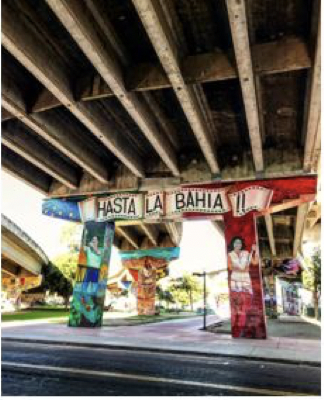 |
 |
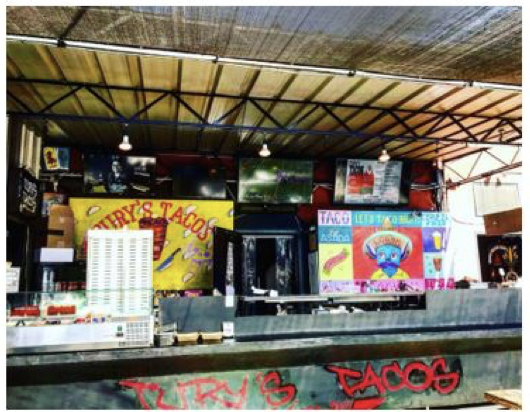 |
We are in the process of organizing several pre-conference workshops, as well as keynote speakers. This year’s keynote speakers will include Sergio Rey of the University of California, Riverside, Kara Kockelman of the University of Texas in Austin, and Bhārat Dahiya of Thammasat University (Thailand)
 |
 |
 |
| Sergio Rey | Kara Kockelman | Bharat Dahiya |
This year we are planning several special sessions and events focused on graduate students and young scholars. There is a special section of the conference website devoted to these sessions and events. This will be updated as new sessions/events are confirmed, so please check the website frequently.
We are also planning to have numerous organized sessions devoted to specific topics. Do you have an interest in organizing a special session or a series of special sessions? If you do, please contact NARSC Executive Director, Neil Reid (This email address is being protected from spambots. You need JavaScript enabled to view it.), as soon as possible.
For overseas attendees, we are offering expedited abstract acceptance to anyone coming from a country that requires a visa to enter the United States. Once you have submitted your abstract, and you need an acceptance letter, please contact NARSC Executive Director, Neil Reid at This email address is being protected from spambots. You need JavaScript enabled to view it..
We understand that the current Covid-19 pandemic has created a lot of uncertainty about conferences, and that a number have been cancelled. At this point in time, our plan is to proceed with the conference. We will, of course, continue to monitor the situation and adjust our plans if conditions necessitate. If you do register for the conference and are unable to attend because of restrictions related to Covid-19, we will refund your registration fee.
Abstract Submission and Registration
Click on the link to the conference section for general information on the conference. To register for the conference or submit an abstract/session online you must first login to the User Area. If you attended a NARSC conference over the past couple of years or are a member of a North American regional science organization, when you reach the login page of the User Area, you will be asked to enter your provided username and password. Otherwise, when you reach the login page of the User Area, you will be asked to click on a link and enter your e-mail address so we can check if you are already in our database. If you are in our database, your username and password will be e-mailed to you so you can login. If you are not in our database, you will need to register for a free NARSC user account and then you will be able to register for the conference and submit an abstract.
Once logged, you can change your password, update your profile, submit an abstract/session, register for the conference, and check the status of your registration. You will be able come to your account in the User Area subsequently using your valid username and password. In case you forget your password, just contact technical support at This email address is being protected from spambots. You need JavaScript enabled to view it. with your e-mail address and your password will be e-mailed to you so you can login.
Please note that there is a surcharge for individuals who are not members of RSAI. When you are ready to register for the conference please check your RSAI membership status. You can do that by consulting the RSAI Members List. If you have any questions regarding your RSAI membership status or would like to join RSAI please contact Elisabete Martins (This email address is being protected from spambots. You need JavaScript enabled to view it.) at the RSAI Central Office.
Individual papers and organized sessions must be submitted online in the abstract submission section of the website between now and JULY 5, 2020. The conference registration section is open and allows secure electronic financial transactions. Information about the workshops will be posted in late June. If you are potentially interested in attending any workshops it is suggested that you wait until information about them is available before registering for the conference. Be sure to consult the conference website for additional information and details.
Conference organizers welcome individual papers and organized sessions relating to a wide variety of topics that are included within the diverse realm of regional science. As usual, there will be several organized sessions. If you are interested in participating in one of these organized sessions, please contact the session organizers. Details about these can be found here. Please note that the list of special session is updated on a regular basis, so please check back.
NARSC an international scholarly organization that focuses on regional analysis, ranging from urban and spatial theory to applied problems in regional development, sustainability, environmental management, and rural land use. We are an interdisciplinary association, with members representing fields as diverse as economics, agricultural economics, public policy, urban planning, civil engineering, geography, finance, and demography. The annual North American RSAI conference is the premier regional science meeting in North America and attracts scholars and practitioners from around the world.
A block of rooms has been reserved at the The Westin San Diego Gas Lamp Quarter at a specially negotiated rate of $229 (plus applicable taxes and fees) for a double-occupancy room. Please book the conference hotel through the NARSC website. By doing so, NARSC will get credit for your booking. Bookings can be made here.
If you have questions, here is contact information:
- Local arrangements: This email address is being protected from spambots. You need JavaScript enabled to view it.
- Program Chair: This email address is being protected from spambots. You need JavaScript enabled to view it.
- Overall Arrangements: This email address is being protected from spambots. You need JavaScript enabled to view it.
We look forward to seeing you in San Diego.
http://www.narsc.org/newsite/conference/special-session-call-for-papers/.
Photo credits for Gas Lamp Quarter photographs – left to right - By Visitor7 - Own work, CC BY-SA 3.0, https://commons.wikimedia.org/w/index.php?curid=31271319; By Winwinintl - Own work, Public Domain, https://commons.wikimedia.org/w/index.php?curid=8532220; By Leandro Neumann Ciuffo - Gaslamp district - 2, CC BY 2.0, https://commons.wikimedia.org/w/index.php?curid=28377633.
About Us
The Regional Science Association International (RSAI), founded in 1954, is an international community of scholars interested in the regional impacts of national or global processes of economic and social change.

